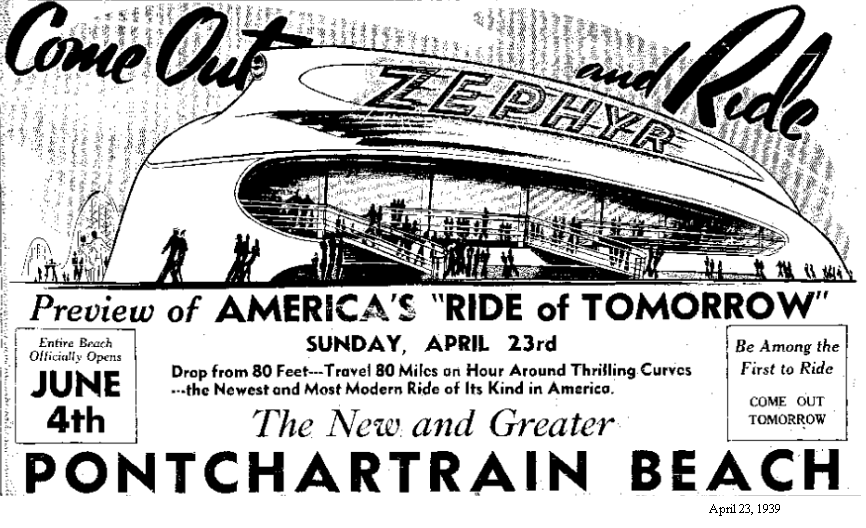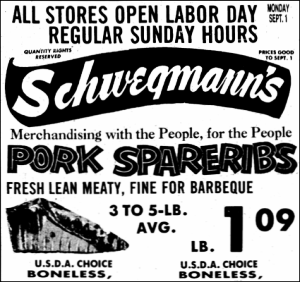|
Today in New Orleans History |
|
|
January 22


 Attorney A. P. Tureaud Sr., civil rights leader, was
born on February 26, 1899. He received his early education in the schools of New Orleans. He received his law degree from
Howard University in 1925. Tureaud first practiced law in Washington, D.C. He decided to return to his native state and opened
a law office in New Orleans in 1926. In a later interview he stated that he never regretted the decision. "Mr. NAACP" as Mr. Tureaud was called fought against racial discrimination in the south for fifty years.
In 1927, he joined the NAACP's legal team as an attorney for the organization's Legal Defense Fund, filing numerous lawsuits
to desegregate schools, businesses and public facilities in Louisiana and Mississippi. His name appeared on virtually every
suit filed by the NAACP because for a time he was the only black lawyer in the state of Louisiana. Tureaud died on January 22, 1972. At his funeral, his longtime associate and noted civil rights attorney, Thurgood
Marshall, delivered the eulogy. Text from the New Orleans Public Library. Photo by Rachel L. Emanuel. Further reading: A
More Noble Cause: A. P. Tureaud and the Struggle for Civil Rights in Louisiana  

To receive an update for each day in New Orleans
history, join our facebook page
- Today in New Orleans History
Newspaper headlines for January 22, 1909
read :GOV. SANDERS STOPS NEW ORLEANS RACING; Threatens to "Take a Hand" if Betting Is Not Discontinued at Suburban
Park. RACE TRACK GATES CLOSED Arrest of Bookmaker Sheehan Will Serve as a Test of Anti-Racing Law in Louisiana"
The story: After continuing for a week, the race meet at Suburban Park, in Jefferson Parish [McDonoghville], across
the Mississippi River from New Orleans, to-day was closed, at least temporarily. The announcement of the suspension was
made at the conclusion of the fourth race, shortly after John Sheehan of Memphis, a bookmaker, had been arrested on the charge
of violating the Locke anti-racing law. Gov. Sanders of Louislana has suppressed racing at the Suburban track by
peremptorily ordering Sheriff L.H. Marrero to stop the system of betting. Joseph Ansoetegui Shakspeare (April 12, 1837 - 22 January
1896) was mayor of New Orleans from 1880 - 1882 and again from 1888 to 1892. He
was born in New Orleans, the son of a Quaker from Delaware, Samuel Shakspeare, and Mariane
(Mathias) Shakespeare, a Swiss immigrant. He studied iron design in New York City and later returned to New Orleans to run
an ironworks started by his father. He later entered politics, serving one term in the state legislature. He married Antoinette
Kroos, a German immigrant, in 1863; the couple had five children. In the municipal election of 1880, Shakspeare accepted
the mayoral nomination of a coalition of reformers determined to take power from “the Ring”, a scandal-plagued
local political machine. Shakspeare defeated Jules Denis, the Ring candidate, by 9803 votes to 9362.
For several days, outgoing Ring mayor Isaac W. Patton refused to recognize the results. He would not give up City Hall until
ordered by a judge. In the municipal election of 1888, Shakspeare ran again as a reform candidate opposing the Ring. As before,
he was supported by members of the city’s conservative Bourbon business elite, and he defeated the Ring candidate,
Judge Robert C. Davey, by 23,313 votes to 15,635. The election was characterized by the presence of armed bands of men from
both the reform and Ring camps. Under the rules of the new charter, Shakspeare’s second term was a four-year one.
His second term was characterized by renewed street improvements, the introduction of electric street lights and street
cars, and a further improvement of the city’s debt situation. His administration began construction of a new courthouse
and jail complex on Tulane Avenue. He also created a professional fire department to replace the existing volunteer fire
departments, which had been active in municipal machine politics. But his efforts to use the police department as a source
of political patronage alienated some of his reform-oriented supporters. Shakspeare appointed David Hennessy as chief of
police. Hennessy’s assassination in October 1890, allegedly by members of the Sicilian Mafia, sparked an anti-Italian
riot in which the parish prison was stormed and eleven Italian immigrants were lynched. The riot created an international
diplomatic incident with the government of Italy. Shakspeare ran for a third term in 1892, but by then his reputation as
a reformer was tarnished, and he was defeated by Ring candidate John Fitzpatrick, who was
a popular politician with strong pro-labor credentials. Shakspeare died in New Orleans in 1896. From the New Orleans
Public Library.
Walter Louis Cohen, a politician and businessman, was born a free man of color in New Orleans on January
22, 1860. He was educated at St. Louis Catholic School and Straight College. An active member of Reconstruction
politics he was one of the few African Americans to hold political office after Reconstruction. He was appointed to the office
of Customs Inspector by President McKinley, to the position of Registrar of U. S. Land Office by President Theodore Roosevelt,
and to the office of Comptroller of Customs by President Harding. A successful businessman Cohen was founder and president
of People's Life Insurance Co. He was also active in benevolent and fraternal organizations. Walter L. Cohen died in
New Orleans on December 29, 1930 and is buried in St. Louis Cemetery No. 3. (From tthe New Orleans Public Library) John Brownlee, politician. Born, Belfast, Ireland, January 22, 1818.
Immigrated to the United States at age 13, and received his citizenship papers, October 1847. Confederate service:
Company "B", Ninth Regiment, First Brigade, Duvergé Guards, Parish of Orleans, Right Bank, Algiers Battalion,
Louisiana Militia. Served as treasurer, Duvergé Guards. (This organization was also known as Capt. James
T. Anderson's Company, Algiers Battalion, Louisiana Militia). Married, Janaury 21, 1843, Mary Ann Spence of New York
City. Children: Elizabeth (b. 1845), William Thomas (b. 1848), Edward (b. 1850), John, Jr. (b. 1851), Charles
Henry (q.v.), Emma Louisa (b. 1859), Ella G. (b. 1862). Active in Democratic party; president, Orleans Parish Police
Jury; justice of the peace; Orleans Parish comptroller of licenses; constable, Algiers, 1861; member, Saints John Lodge No.
153, F. & A.M., Masonic Lodge, served as senior deacon, 1862, secretary, 1865. Died, New Orleans, December 12, 1869;
interred Odd Fellows Rest and Cemetery. C.M.B. Sources: C. V. Kraft, The Herald, Vol. XIII, special edition,
p. 112; Gardner's New Orleans Directory—Government of Algiers; family bible and family papers; Succession of John Brownlee,
Petition No. 38051, Second District Court of Algiers, 5th District, New Orleans, Orleans Parish, Louisiana; Civil War Record:
Card no. 47011809, Veterans Records, National Archives, Washington, D. C.; Official records from Saints John Lodge No. 153,
F. & A.M., Algiers, 5th District of New Orleans, La.; New Orleans Vital Records; Odd Fellow Rest and Cemetery Records
and Vault #589 inscriptions; Louisiana census: 1850, 1860, 1870. From http://lahistory.org/site19.php
|
|
|

To receive an update for each day in New Orleans history,
join our facebook page - Today in New
Orleans History.
Analytics |
 Alexander Pierre Tureaud Sr.
Alexander Pierre Tureaud Sr.
